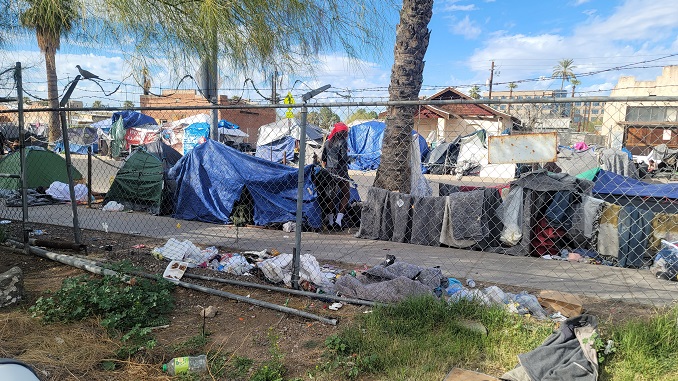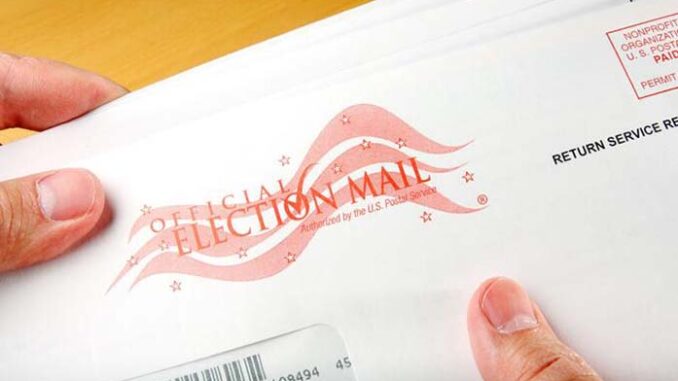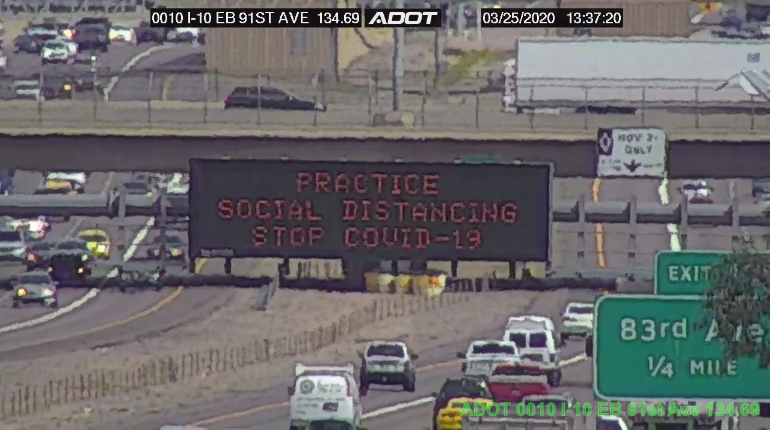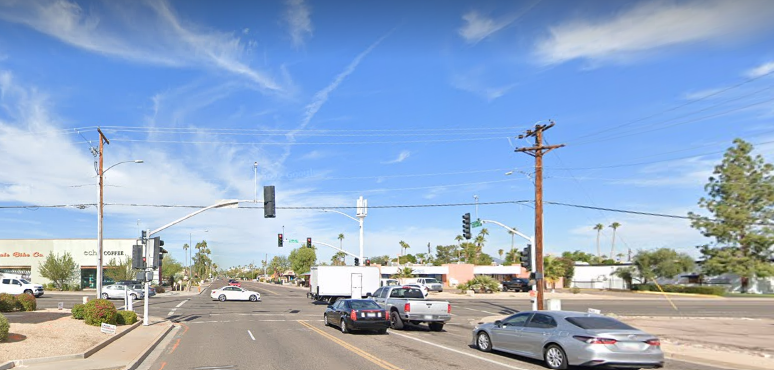
by Daniel Stefanski | Mar 28, 2023 | Education, News
By Daniel Stefanski |
Republicans are leading a historic effort to raise teachers’ salaries, while most Democrats are resisting the current approach in the Arizona State Legislature.
On Monday, the Arizona House moved HB 2800, sponsored by freshman Representative Matt Gress, closer to a final vote in the chamber, amending it in the Committee of the Whole session. This bill “mandates each school district and charter school increase the base salary of all eligible teachers as prescribed.” It also “creates the Pay Teachers First Fund and appropriates a total of $1,100,000,000 in FYs 2024 and 2025 to the Fund for required teacher salary increases.”
According to figures provided by House Republicans, HB 2800 would give Arizona teachers the fourth highest ($50,554) starting salaries in the nation, compared to a current ranking of 27th ($40,554).
Arizona Superintendent of Public Instruction Tom Horne previously announced his strong support of this bill and appeared at a press conference at the state capitol last week with Gress and other lawmakers to tout the legislation’s movement through the House.
When asked by AZ Free News about why he supported HB 2800, Superintendent Horne replied: “I support HB 2800 because no school is better than the quality of the teachers in the classroom. Our surrounding states pay more so we lose good teachers to them, and we can no longer afford to do that.”
Representative Gress thanked Superintendent Horne for his support of the bill, writing, “Thanks @RealTomHorne for your advocacy on #HB2800. Raising teacher pay is key to recruiting and retaining excellent talent. We will not be deterred by the unions who are actively pressuring House Democrats to kill a $10,000 pay raise for teachers.”
Gress submitted a floor amendment to his bill Monday, which passed. The changes, in part, “removes the stipulation that an eligible school may receive the prescribed per teacher base salary increases from the Pay Teachers First Fund only for the lesser of the number of eligible teachers that a) are employed by the school; or b) would be employed by the school if the school had 15 students per eligible teacher.” It also tweaked elements of the proposed school online transparency portal, school districts facilities master plans, and appropriations.
Though both Republicans and Democrats campaign on adequately funding public education in Arizona, Representative Gress’s proposal has met with fierce resistance from many Democrats and school & teacher organizations around the state. Five Democrats voted against the bill in the House Appropriations Committee, and representatives from the AZ School Administrators Association, AZ Education Association, Save Our Schools Arizona, and AZ School Boards Association have registered their opposition.
In the lead-up to Monday’s deliberations, the House Democrat Caucus ardently campaigned against HB 2800, calling it a “wolf in sheep’s clothing” and “deeply flawed.”
Should the bill pass the House, it will soon head to the Arizona Senate for consideration and a potential vote in that chamber in the near future. If it clears the Senate, Democrat Governor Katie Hobbs will be forced to decide between giving teachers a $10,000 raise or denying them this much-needed increase.
Daniel Stefanski is a reporter for AZ Free News. You can send him news tips using this link.

by Corinne Murdock | Mar 28, 2023 | News
By Corinne Murdock |
On Monday, the Maricopa County Superior Court ruled that the city of Phoenix is at fault for the homeless crisis, most evident in the massive encampment downtown known as “The Zone.”
Judge Scott Blaney ruled that city officials had done nothing to improve The Zone, declaring it a public nuisance. Rather, Blaney declared that the city had created and maintained The Zone. Blaney added that the actions undertaken by the city, allegedly to address the homeless crisis, had served only to grow its bureaucracy and throw money into government and nonprofit programs that haven’t yielded any discernible results.
“With few exceptions, the action items about which city representatives testified centered around the creation of more bureaucracy, additional staff positions, and obtaining additional funding for programs to vaguely address homelessness in general,” stated Blaney. “The Court received very little evidence — if any — that the City intends to take immediate, meaningful action to protect its constituent business owners, their employees, and residents from the lawlessness and chaos in the Zone.”
Blaney ordered the city to abate The Zone by permanently removing the encampments in public rights of way; cleaning up the biohazardous materials including human feces and urine, drug paraphernalia, and other trash; and removing individuals committing offenses against the public order. Effectively, the judge ordered the city to enforce existing laws.
The city has until July 10 to achieve material results toward compliance with the court’s ruling.
In the 23-page ruling, Blaney agreed with arguments posed by the plaintiffs, made up of residents and business owners in The Zone: that the city stopped enforcing laws within The Zone, resulting in increased violent crime, property crime, prostitution, public indecency, public drug use, a blocks-long biohazard, fire hazards, and environmental destruction.
READ OUR INVESTIGATIVE REPORT ON THE ZONE
Notably, Blaney agreed that the owners of Maker Kitchens had the right to install the dinosaur statues on the right of way adjacent to its building to discourage the homeless from re-establishing their encampments after the city did a cleanup to do gas line work. Blaney ruled that the city had arbitrarily enforced its laws so as to ignore violations by the homeless on that land and yet demand removal of the statues.
Blaney ruled that the city couldn’t force the restaurant to remove the dinosaur statues until it cleaned up The Zone or the court issued a further order.
Blaney ruled that the city had “abused its discretion through the arbitrary application of the law and provision of taxpayer funded security in The Zone.” He also ruled that the residents and business owners who filed the lawsuit had a strong possibility of receiving damages on the basis of irreparable injury, should the city not provide relief by mitigating The Zone.
Blaney agreed that city leaders erroneously applied the Ninth Circuit Court of Appeals’ ruling in Martin v. City of Boise, which determined that municipalities couldn’t enforce public camping laws against the homeless when no adequate temporary shelter options existed.
The judge further noted that the city had wholly ignored the residents’ and business owners’ proposals to resolve the homeless crisis, an outdoor shelter space, presented in January 2020 — just before the crisis “really got out of hand.” However, the city ignored all proposed plans to mitigate the crisis until one month before the plaintiffs filed their lawsuit, last October. That’s when the city approved the construction of a “sprung structure” containing 200 additional shelter beds.
Yet, Blaney stated that the city’s proposed shelter options were either designed as temporary, being seasonal, or as speciality situations, being intended for domestic violence survivors or COVID-19 response.
At one point in his ruling, Blaney surmised that violent, organized crime had taken root in The Zone. AZ Free News reported that gangs run The Zone, assaulting and charging encampment space rent to the homeless.
“The evidence also strongly suggests that the City created and maintained the dire situation that currently exists in The Zone through its failure, and in some cases refusal, to enforce criminal and quality of life laws in The Zone,” said Blaney. “The City’s refusal to meaningfully enforce statutes and ordinances in The Zone has created a classic ‘siren song’ to certain individuals that are enticed at their peril by The Zone’s drugs, sex, and lack of societal rules.”
The court’s ruling comes days after the city promised it would arrange some kind of meeting on the issue at some point following back-to-back murders in The Zone.
Corinne Murdock is a reporter for AZ Free News. Follow her latest on Twitter, or email tips to corinne@azfreenews.com.

by Daniel Stefanski | Mar 28, 2023 | News
By Daniel Stefanski |
An Arizona legislative proposal to increase transparency into state elections is slowly making progress through the Senate, and it appears to have some bipartisan support.
SB 1324, sponsored by Senator Ken Bennett, “requires a county recorder to publish a list of eligible voters, with outlined information, on the county recorder’s website 10 days before a primary and general election,” and it “requires the Secretary of State to digitally publish a list of all persons who voted in an election, all ballot images and a sortable cast vote record” – according to the purpose provided by the Arizona Senate.
In defense of his bill after shepherding it through the Committee of the Whole session, Senator Bennett said, “The answer to confidence in our elections is transparency. As leaders of this state, we should not fear transparency. Candidates, whether they’re winners or losers, should not fear transparency. County and state election officials should not fear transparency. If things were done right in the election, there’s no need to fear that detailed information being released so people can verify.”
During the Committee of the Whole session, three amendments were added to the bill – two from the bill sponsor and one from Democrat Senator Christine Marsh. Bennett alluded to Democrat Secretary of State (SOS) Adrian Fontes supporting his second amendment, which would prohibit “the SOS, county recorder and other county officer in charge of elections from altering or adding any voter data as part of any security measure in implementing the requirements relating to voter lists and ballot images.”
The multifaceted Marsh amendment “requires the SOS to establish and administer an electronic portal to receive requests for access to the ballot image materials”; “requires, for a person requesting access to the materials, the SOS to require the person’s contact information and a declaration signed by the person stating that the person will not use the material for a commercial purpose as prescribed by statute, alter the images or information, or use the information or images for voter intimidation”; and “classifies, as a class 5 felony, the act of using any portion of a voter list or ballot image for a commercial purpose or intentionally altering any information of images of the voter lists, ballot images or cast vote record.”
Marsh was asked if she would support SB 1324 after her amendment was adopted and told her Republican colleagues that she was still a no on the bill.
Bennett explained that his bill is about “four pieces of data: before the election, release the list of people eligible to vote in the election; after the election and canvass, release the list of who voted in the election; the ballot images – there should be one ballot image for everyone on the who-voted-list; the cast-vote record, which is a spreadsheet with the votes of individual anonymous ballots.” He engaged several questions and answers from his Democrat colleagues during the Committee of the Whole session.
In February, the Senate Elections Committee, chaired by Senator Wendy Rogers, approved the legislation with a party-line 5-3 vote.
Maricopa County Recorder Stephen Richer, a Republican, announced his support for SB 1324 back in February after it passed through the Senate Elections Committee. Richer stated, “Elections work when there is openness and transparency. SB 1324 does that by creating a system where each county recorder can inform voters before and after every election about who is eligible to vote while protecting voter confidentiality. All three – the list of eligible voters, the list of who voted, and the cast vote record – will be available to anyone who wants them. SB 1324 and Speaker Ben Toma’s legislation, HB 2560, contain similar language and will further strengthen our elections by enshrining the kind of transparency that can build public trust in our elections.”
Daniel Stefanski is a reporter for AZ Free News. You can send him news tips using this link.

by Corinne Murdock | Mar 27, 2023 | Education, News
By Corinne Murdock |
Arizona State University (ASU) held a Department of Justice (DOJ) “United Against Hate” event for the LGBTQ+ community last Wednesday.
The event was the second in a series from the Arizona District Attorney’s Office, hosted by ASU’s Sandra Day O’Connor College of Law. There were approximately 80 guests invited, including representatives from the FBI, the Phoenix Police Department, the Maricopa County Attorney’s Office, and the Attorney General’s office.
District attorney Gary Restaino said that his office was not only committed to prosecuting hate crimes and discrimination, but tackling ignorance and bias.
“Hate crimes harm not just individuals, but also traumatize communities and families,” said Restaino. “My office is committed to using all the tools in our law enforcement arsenal, both to prosecute acts motivated by hate, and to educate against ignorance and bias.”
UAH events are part of the DOJ’s national United Against Hate program, which coordinates all 94 U.S. Attorney’s Offices (USAOs) to combat hate crimes. The DOJ announced the initiative last September. According to the initial press release description of the program, UAH events resemble workplace harassment training: hypothetical scenarios and video clips depicting real-life hate crime cases and stories.
Attorney General Merrick Garland explained that the UAH program was designed to strengthen coordination between the community and law enforcement to respond to hate crimes and discrimination.
“That is why the Justice Department has launched its new United Against Hate program. This initiative brings together community groups, community leaders, and law enforcement at every level to build trust and strengthen coordination to combat unlawful acts of hate,” said Garland.
Assistant Attorney General Kristen Clarke added that this greater coordination would ensure that more allegations of hate crimes and discrimination would be investigated.
“The stronger the ties between communities and law enforcement, the more faith that communities will have that their allegations will be investigated and taken seriously. This moment requires an all-hands-on-deck strategy to fully confront unlawful acts of hate,” said Clarke. “The United Against Hate program brings together the vast network of civil rights, government, faith, and community-based leaders needed to improve reporting, promote prevention strategies and build the resilience needed to confront hate crimes and incidents.”
Garland first revealed the intent to launch the UAH initiative in May 2021, following President Joe Biden signing the COVID-19 Hate Crimes Act and Jabara-Heyer NO HATE Act into law. The act prioritizes funding for states who implement a hate crimes investigatory infrastructure in accordance with the legislation, part of which includes a community liaison and public meetings or educational forums on the impact of hate crimes, services available to hate crime victims, and the laws regarding hate crimes.
The act also moved that those sentenced to supervised release following imprisonment for a hate crime may be required to undergo educational classes or community service related to their offense.
Three USAOs piloted the program in spring 2021: New Jersey, Massachusetts, and the Eastern District of Washington. There have been over 50 events held nationwide since then.
The first UAH event in Arizona occurred in December, at the First Institutional Baptist Church in Phoenix. The event focused on combating hate crimes and discrimination against African-Americans. The Arizona District Attorney’s Office plans on hosting more UAH events in the coming months.
Corinne Murdock is a reporter for AZ Free News. Follow her latest on Twitter, or email tips to corinne@azfreenews.com.

by Daniel Stefanski | Mar 26, 2023 | News
By Daniel Stefanski |
A bill to limit a certain government agency’s arsenal of communications is advancing through the Arizona Legislature, though it became a tough sell for Democrats on the House floor after earlier bipartisan votes in committees.
HB 2586, sponsored by Representative Neal Carter, “restricts the Arizona Department of Transportation’s (ADOT) dynamic message signs (DMSs) to display only messages that are directly related to transportation or highway public safety and outlines exceptions,” according to the purpose provided by the State Senate.
During his testimony to the House Transportation & Infrastructure Committee, the bill sponsor, Representative Carter, explained that “this bill is the law in other states.” His reasons for introducing the bill were that some of the ADOT freeway signs are a “little bit distracting” because there are messages that may not be related to transportation and otherwise inappropriate to share with commuters; and that there was good cause to worry “about government effectively using it as an advertisement for other things.” He told the committee that this would be worrying “because the people making those decisions should be elected people,” and it would be a “slippery slope” to have bureaucrats at ADOT deciding what to market or message.
When questioned about the legislation by the committee chairman, Representative David Cook, Carter clarified that it would not be the intent of HB 2586 to “specify how to make the messaging” – for example, limiting the creativity of the content as long as it was directly related to transportation. Representative Carter’s chief concern was signs that aren’t communicating directly about transportation – like “No Burn Days.”
Chairman Cook and Carter both agreed that ADOT messaging about vaccines would be a good example of what should not be included on the signs for passersby.
Representative Carter amended his bill to allow “the Arizona Department of Transportation to display reminders to vote on dynamic message signs.”
The bill passed out of the House Transportation & Infrastructure Committee with a 7-4 vote, with one member absent from the final deliberation. One Democrat voted in support. The Rules Committee unanimously approved the legislation with an 8-0 tally.
On the House floor, Democrat Representative Cesar Aguilar highlighted his opposition to the bill, arguing that the policy “would impact Arizona’s culture of signs we see on the road,” noting his perception that the ADOT “Don’t Drink and Drive” signs would be banned should this legislation be signed into law. Carter rejected that assertion, saying that the aforementioned signs were transportation-related and would not be subjected to the updated regulations of his bill. Carter also touted the bipartisan support for the bill during the committee process. Unlike in committees, though, HB 2586 did not receive any support from Democrats on the House floor, passing 31-28 – with one Democrat member not voting.
HB 2586 was transmitted to the Senate and was approved by the Transportation and Technology Committee earlier this month with a party-line 4-3 vote. It awaits further action from that legislative body.
Daniel Stefanski is a reporter for AZ Free News. You can send him news tips using this link.

by Corinne Murdock | Mar 26, 2023 | News
By Corinne Murdock |
Scottsdale will halve the number of lanes on a major roadway, a “road diet” that effectively burdens car travel. The changes will occur to 68th Street between Indian School Road and Thomas Road, and will reduce the two-lane roads on either side into single lanes.
According to the Department of Transportation (DOT), a “road diet” occurs when a four-lane undivided roadway becomes a two-lane undivided roadway, with the former road lanes converted into alternative transportation lanes: bike lanes or pedestrian refuge islands, for example.
DOT noted that road diets are typically implemented on roadways with current and future average daily traffic of 25,000 or less. According to the city data last updated in 2020, the average daily traffic counts for that area were 38,000 at the crossroads of 68th Street and Thomas Road, and 46,100 at 68th Street and Indian School Road. That number is undoubtedly higher now based on the latest population data.
According to census estimates, Scottsdale is growing at a rate of about one percent annually, and has grown by nearly three percent since the 2020 census. According to the U.S. Census annual state population estimates released last December, the state was the fifth-fastest growing state in the nation; Maricopa County leads in those gains.
The city approved the changes during its council meeting last week in a close vote, 4-3. The two lost lanes will be turned into bike lanes using a .2 percent transportation sales tax funding, costing just over $334,600. The city will also receive over $1.48 million in federal funding awarding environmentalist development: “Congestion Mitigation Air Quality” and “Transportation Alternatives” funds.
With federal and local funds combined, current funding sources for the project total $1.8 million. Proposed funding for the project total over $1.9 million.
Councilmember Barry Graham lamented his fellow council members’ decision.
“I tried to find a compromise that preserved the car lanes,” tweeted Graham. “Unfortunately, councilmembers made the issue about what they want—not what you want.”
Vice Mayor Kathy Littlefield and Councilmembers Betty Janik joined Graham in his “no” vote.
State Rep. Joseph Chaplik (R-LD03) criticized Scottsdale for adopting a “road diet.”
Chaplik also testified that he bore witness to similar initiatives taking place in Portland, Oregon, before that city “imploded.”
The reduction of car lanes to disincentivize car use echoes similar “Vision Zero” efforts — an attempt to eliminate all traffic fatalities by restructuring roads in ways that, ultimately, diminish the number of cars on the road. Vision Zero is a fiscally sponsored project of Community Initiatives, a grantmaking institution whose funding comes from a variety of left-leaning nonprofits such as the Grove Foundation, Rockefeller Brothers Fund, and the NoVo Foundation.
Scottsdale’s major neighbor, Phoenix, adopted a Vision Zero plan of their own.
Last September, the city of Phoenix decided to spend $10 million every year until they achieve zero traffic-related fatalities, as per their Vision Zero Road Safety Action Plan (RSAP).
Corinne Murdock is a reporter for AZ Free News. Follow her latest on Twitter, or email tips to corinne@azfreenews.com.






